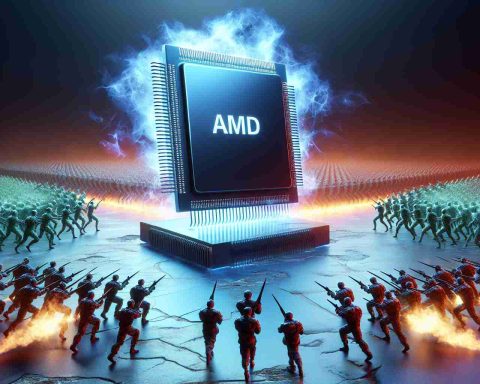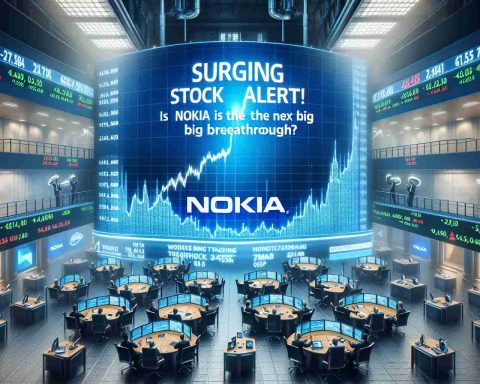Nokia is launching an ambitious share buyback initiative! Beginning on November 25, 2024, this program is designed to counteract the dilution effects from issuing shares to Infinera Corporation stakeholders and other related share incentives following Nokia’s acquisition of Infinera. This initiative has received authorization from the company’s annual general meeting held on April 3, 2024, and adheres to rigorous regulatory frameworks including the Market Abuse Regulation.
The buyback program is set to run until December 31, 2025, with Nokia’s board of directors revealing on November 22, 2024, that the company plans to repurchase up to 150 million shares for a total investment of €900 million. As part of this ongoing effort, Nokia has successfully completed transactions amounting to €3,826,308, raising its treasury stock to approximately 230.8 million shares.
This strategic move highlights Nokia’s dedication to optimizing its capital structure and enhancing shareholder value. As a frontrunner in the B2B technology sector, Nokia remains at the forefront of innovation, offering cutting-edge networking solutions that are designed for scalability and integration across a diverse range of ecosystems. Through these efforts, the company aims to unveil new opportunities for commercialization, benefiting its global partners immensely.
This information is based on an official press release from Nokia Oyj.
Economic and Cultural Ripple Effects of Nokia’s Buyback Initiative
Nokia’s substantial share buyback program, which signals its commitment to shareholder value and financial health, holds broader implications for both the global economy and societal perceptions of corporate responsibility. As companies engage in buyback schemes, they are often viewed through the lens of prioritizing investor profits over employee welfare or community development. This sentiment is particularly relevant as the landscape of corporate governance evolves; stakeholders are increasingly demanding that firms demonstrate social responsibility alongside financial performance.
In the broader context, such buyback programs can influence stock market dynamics. When companies like Nokia withdraw shares from circulation, they effectively enhance earnings per share metrics, which can lead to a temporary boost in stock price. This tactic, while beneficial in the short term, raises questions about long-term sustainability in a market where technological innovation is critical. Investors may become wary if they perceive that corporate spending is not being directed toward research and development—essential in retaining competitiveness in the high-stakes technology landscape.
Moreover, as Nokia optimizes its capital structure, it sets a precedent for other firms, particularly in the tech sector, potentially leading to a wave of similar actions. This trend could shift focus from reinkeeping talent and innovation to financial engineering, influencing a corporate culture that prioritizes short-term gains.
The environmental aspect also cannot be overlooked. Companies investing heavily in stock repurchases might reduce their investments in sustainable practices or technologies that combat climate change. With global discussions increasingly centering on environmental responsibility, firms must balance shareholder demands with the need to contribute positively to the planet.
In conclusion, Nokia’s strategic buyback is not just a financial maneuver; it is a microcosm of larger cultural and economic trends that reflect the ongoing tensions between profit maximization, corporate responsibility, and long-term sustainability.
Nokia’s Strategic Share Buyback Program: What You Need to Know
Overview of Nokia’s Buyback Initiative
Nokia is set to launch a significant share buyback program starting on November 25, 2024. This initiative aims to mitigate the dilution of shares resulting from its acquisition of Infinera Corporation, as well as other related share incentive programs. Authorized during the company’s annual general meeting on April 3, 2024, the initiative adheres to the strict regulations outlined in the Market Abuse Regulation.
Key Details of the Buyback Program
The share buyback program is scheduled to operate until December 31, 2025. On November 22, 2024, Nokia’s board of directors announced plans to repurchase up to 150 million shares, with an investment cap of €900 million. To date, the company has already executed transactions worth €3,826,308, increasing its treasury stock to approximately 230.8 million shares.
Impact on Capital Structure and Shareholder Value
This move reflects Nokia’s commitment to optimizing its capital structure while enhancing shareholder value. By reducing the number of outstanding shares, the company aims to increase the earnings per share (EPS), which can lead to a higher stock price over time.
Innovations and Trends in the B2B Technology Sector
As a leader in the B2B technology sector, Nokia is dedicated to innovation. The company provides advanced networking solutions designed for scalability and seamless integration across various ecosystems. This focus on cutting-edge technology not only positions Nokia favorably in the market but also opens new commercialization opportunities that benefit global partners.
Pros and Cons of Nokia’s Buyback Program
Pros:
– Enhanced Shareholder Value: By repurchasing shares, shareholders may benefit from increased EPS and stock value.
– Capital Structure Optimization: The buyback is a strategic move to strengthen the company’s financial standing.
– Market Confidence: Initiatives like this signal to the market that the company has robust financial health.
Cons:
– Reduced Cash Reserves: Allocating €900 million towards share repurchases may limit available cash for other investments or operational needs.
– Market Conditions Dependence: The effectiveness of the buyback program can be influenced by various external market conditions and investor sentiment.
Security Aspects and Regulatory Compliance
The program is designed to comply with stringent regulatory frameworks, ensuring that all transactions are conducted responsibly and transparently. This not only protects shareholders but also enhances the company’s reputation in the market.
Conclusion
Nokia’s strategic share buyback initiative is a significant step towards enhancing shareholder value and solidifying its position as a leader in the B2B technology landscape. As the program unfolds, stakeholders can anticipate further developments and insights on the company’s performance.
For more information about Nokia and its initiatives, visit Nokia’s official website.





















